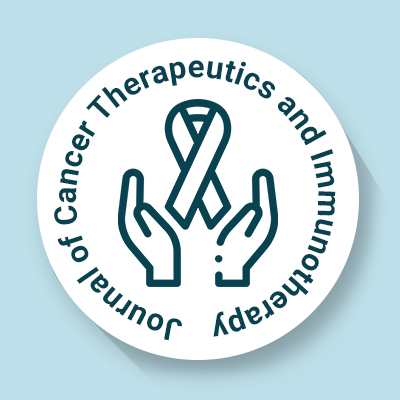
Journal of Cancer Therapeutics and Immunotherapy
OPEN ACCESS

OPEN ACCESS
Cancer immunotherapy denoted as immune oncology. It is a treatment process that employs the immune system of the body to recognize and destroy cancer cells. This treatment increases the immune systems essential capacity to detect or destroy cancer by taking the benefits of tumor antigens-unique molecules exist on cancer cells. These tumor antigens, which may be protein or carbohydrates, act as indicator that reformed antibodies or T cell receptor can recognize triggering an immune reaction against the cancerous cells.
Various forms of immunotherapy are used in the treatment of cancer. A wide used type is immune checkpoint inhibitor, which block proteins that hinder the immune system from targeting cancer cells, allowing a more robust response. A substitute method is T cell therapy, in which a patient’s T cells are genetically altered to recognize and destroy cancer cells. Monoclinal antibodies are designed to attach exactly to tumor antigens, signaling cancer cells for eradication. Cancer vaccines functions by activating the immune system to identify and fight cancer, whereas cytokines therapy boot the immune cell function through the applications of proteins that control immune reaction.
The success of the immunotherapy varies based on the kind of cancer. Certain cancers, including melanoma and specific lung cancers, respond positively to immunotherapy, where as other, such as particular subtype of gastric cancer, might not show notable development.
Medical specialties can be classified in different manners. They can be categorized surgical & internal medicine specialties or organized by patient age, like pediatrics & geriatrics. Certain specialties concentrate on diagnosis, such as radiology & pathology, while other are treatment oriented, like oncology. Another variation is between organ centric specialties, such as cardiology and neurology, and process focused fields, like interventional radiology or robotic surgery. Every specialty is vital to patient care and improvement in medicine.